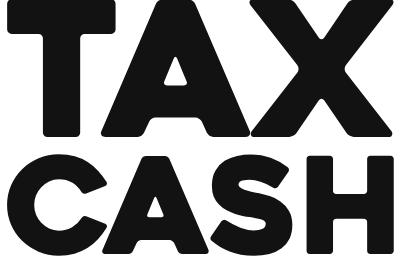About the Petition
South Africa’s informal economy is a sleeping giant—contributing an estimated R750 billion annually through cash-based businesses like spaza shops, informal rentals, street vendors, and township services. Despite its size, this sector remains largely outside the formal tax system, resulting in a loss of ±R20 billion in potential annual tax revenue that could be used to improve critical public services like healthcare, education, water, and sanitation.
One of the biggest challenges is the sector’s reliance on cash, which makes transactions difficult to trace and tax. By introducing a secure digital currency, such as a state-backed digital rand, and ensuring affordable access to banking, we can empower informal traders to transition into the formal economy. This would not only enhance their financial inclusion and access to credit but also enable the South African Revenue Service (SARS) to effectively expand the tax base—without increasing the tax burden on already compliant citizens.
This petition calls on government and financial institutions to take action now. By supporting four key pillars—digital currency adoption, cheaper banking, incentives for informal businesses, and strong public policy—we can unlock billions for national development and create a fairer economy for all. Sign the petition today to help turn South Africa’s untapped economy into a powerful force for inclusive growth and better service delivery.
The Solutions
South Africa can digitise its economy by combining Estonia’s advanced e-government and digital identity systems with Malaysia’s successful deployment of affordable devices and digital financial services. By rolling out a universal, mobile-friendly digital ID linked to zero-fee e-wallets and social grants, the government can bring millions of informal workers and underserved communities into the formal economy. Subsidising low-cost smartphones and expanding free public Wi-Fi in townships will ensure broad access, while integrating digital skills education and QR-based payment systems will empower small businesses to thrive online. This hybrid approach fosters transparency, financial inclusion, and innovation, unlocking new tax revenues and driving sustainable economic growth.
Digital Identity for Everyone
(Estonia’s Backbone)
Why it matters
- Estonia’s success relies on a universal e-ID that gives access to everything: healthcare, banking, voting, education, etc.
-
Malaysia also has a biometric ID system (MyKad), linked to banking and government services.
What SA can do
-
Expand Home Affairs’ digital ID rollout to all citizens (mobile-based version + physical card)
-
Ensure interoperability with banks, SASSA, healthcare, and schools
-
Create an “e-Citizen” portal that consolidates all services (like Estonia’s X-Road)
Universal Digital Bank Accounts
(Inspired by Estonia & Malaysia)
Why it matters
-
In both Estonia and Malaysia, digital inclusion starts with easy access to financial tools
-
In Estonia, 95% of people use online banking
-
Malaysia launched e-wallet initiatives (e.g., Touch ‘n Go eWallet) with incentives
What SA can do
-
Create a zero-fee digital bank account scheme for low-income individuals (public-private partnership with Capitec, TymeBank, etc.)
-
Link this account to social grants, mobile payments, and savings tools
-
Offer government co-sponsored e-wallets with monthly “data or food credits” to stimulate digital use.
Free / Low-cost Devices + Data
Why it matters:
-
No digital economy without devices and data
-
Estonia had strong broadband policies, while Malaysia subsidized devices for students and low-income families
What SA can do:
-
Launch a “1 Million Smart Devices for Development” program:
-
Partner with local refurbishers or Huawei/Samsung to distribute cheap smartphones/tablets
-
Funded by SITA + corporate social investment (CSI) funds
-
-
Zero-rate key government and education websites (many already are)
-
Free public Wi-Fi hotspots in townships and rural areas (modeled after Malaysia’s Pusat Internet)
Digital Skills & Micro-Jobs
Why it matters:
-
Estonia teaches coding from primary school
-
Malaysia has thousands of digital training centers
What SA can do:
-
Integrate digital literacy and coding into all school curricula (using online/offline hybrid models)
-
Create Digital Skills Centres in townships (based on Estonia’s e-school and Malaysia’s Pusat Internet)
-
Incentivize companies to create “micro-job platforms” for youth (remote admin, data labeling, tutoring, etc.)
Digitise the Informal Economy
Why it matters:
-
Up to 35% of South Africa’s economy is informal, largely unbanked and unrecorded
-
Mobile payment systems can boost inclusion (like Malaysia’s QR pay or Kenya’s M-Pesa)
What SA can do:
-
Deploy a QR code mobile payment system for township vendors, hawkers, taxis
-
Provide digital business ID + tax-free threshold to incentivize registration
-
Link these micro-entrepreneurs to free bookkeeping, microloans, and UIF/NHI systems via apps
Government Goes Paperless
Why it matters:
-
Estonia’s government is 99% digital; no queues, no corruption-prone middlemen
-
Malaysia is catching up with MyDigital blueprint
What SA can do:
-
Make all government forms, permits, and services available online
-
Issue digital grant cards that also work as bank cards
-
Reduce procurement corruption with blockchain-based tendering systems
Sources/ References
BusinessTech
The businesses worth R750 billion – that pay zero tax in South Africa
South African Reserve Bank (SARB)
Payments Study Report
LinkedIn – Stitch
Stitch’s Post – Payment System Landscape
Stronger South Africa
Let’s Build The Future Together
Connect

